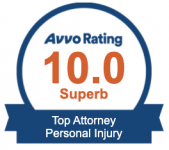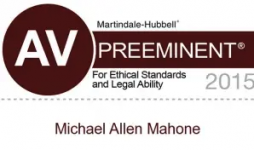If you qualify as a seaman, you have several rights that other workers do not have.
For example, you may be able to sue your employer for negligence under the Jones Act. You may also be able to bring a claim for unseaworthiness against the vessel owner or operator. To do this, you’ll need an experienced New Orleans maritime lawyer.
In addition to these claims, if you’ve been injured while working offshore, you may also have a claim for maintenance and cure. Here are the answers to some frequently asked questions about claims for maintenance and cure laws to help you better understand your rights.
What Is A Claim For Maintenance and Cure?
Maintenance and cure refer to the financial assistance offered by employers to seamen when they become ill while at sea. This assistance covers reasonable medical expenses, the cost of food, lodging, and other living expenses while the individual is being treated.
The purpose of maintenance and cure is to ensure that seamen are not left to struggle financially when they are unable to work.
Injured seamen are entitled to maintenance (essential living expenses for room and board, which are different depending on where you live) and cure (medical expenses) if they are injured while in the service of a vessel.
You don’t have to be on the vessel at the time of the injury or be injured because of your job. You could even be on shore leave or at home, just so long as you would have to go back to the ship if you were called for service.
How Do I Qualify For Maintenance and Cure?
To be eligible for maintenance and cure benefits, you must meet a few requirements. First, you must be a seaman defined by maritime law.
This includes anyone who is employed on a vessel that is in navigation and is, generally speaking, assigned at least 30% of their time to work on the vessel. You must also contribute to the mission and purpose of the vessel. Additionally, you must be sick or injured due to your work duties.
Lastly, you must show that you are unable to work due to your illness or injury. If you meet all these requirements, it is essential to file your claim with your employer and their insurance company as soon as possible to begin maintenance payments and benefits.
Can I Get Maintenance and Cure If I Get Sick?
Yes. A claim for maintenance and cure is not limited to physical injuries but also covers sickness and occupational disease contracted while in the service of a vessel.
The Point of Maximum Medical Improvement
Generally, maritime law requires employers to pay maintenance and cure benefits to seamen until their condition becomes “stable,” which means they have reached what is known as the point of maximum medical improvement (MMI).
The PMI marks when an injured seaman has completed their injury or illness treatment. At this time, it must be determined whether or not the seaman can return to their previous job.
What Should I Do If I Fall Ill While At Sea?
Suppose you become ill while at sea, it is crucial that you immediately notify your supervisor or employer. You will also want to seek medical care as soon as possible. Once you have been treated, it is crucial to keep all of your receipts and documentation to support your maintenance and cure claim.
After that, it is essential to avoid signing any settlement agreements that may limit your ability to file a claim for your injuries, which includes both Jones Act claims against your employer and claims against any potentially responsible third parties. Make sure you seek legal assistance from an attorney who can explain your rights and help you file a claim.
What If My Employer Refuses To Pay Maintenance and Cure?
An injured employer must investigate a claim for maintenance and cure benefits, should resolve doubts about paying it in favor of the seaman, and promptly pay the claim.
An employer who fails to pay maintenance and cure may be forced to pay punitive damages and attorney fees. This provides a powerful incentive for employers to pay maintenance and cure claims.
How Long Can I Receive Maintenance and Cure?
You can only receive maintenance and cure until you reach the point of maximum medical improvement (MMI). In other words, these maintenance benefits last until your condition becomes permanent or will not improve further with additional medical treatment.
You Have the Right to Choose Your Doctor & Medical Treatment
The general maritime law allows injured maritime workers to choose their doctors and a treating physician for medical treatment, so you have the right to consult a doctor of your choice aside from a company doctor.
This is important because it prevents ship owners from sending an injured seaman to a medical care provider who will recommend treatment that coincides with the employer’s best interests or insurance company rather than focusing on what’s right for the injured seaman.
Need Help? Contact Us For Your Maintenance and Cure Claim
If you’ve been injured working offshore, you may be entitled to file claims against your employer for maintenance and cure, Jones Act negligence, and other causes of action available under the law. Call a New Orleans maritime attorney at (504) 564-7342 to start your claim today and ensure that your claim for maintenance and cure is protected. Contact us for a free case evaluation today. The Mahone Firm is here to help with your offshore injury case.
Or, click here for answers to some questions commonly asked of New Orleans maritime lawyers.






